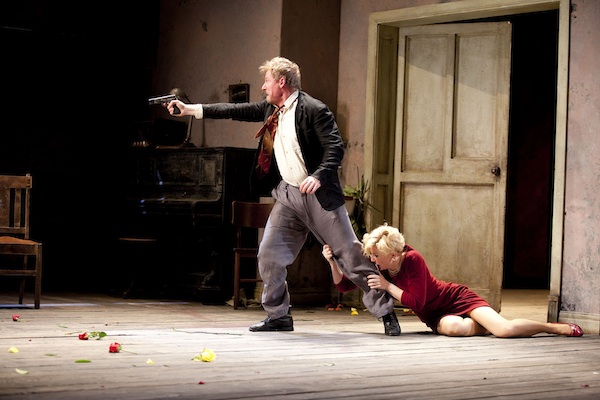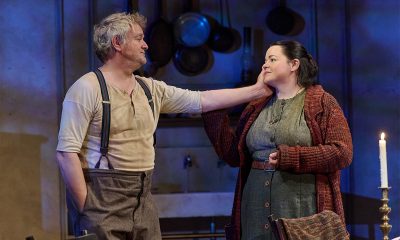Arts & Entertainment
Decadent drama
Blanchett and co. delight in Chekhov adaptation
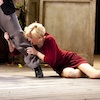
‘Uncle Vanya’
Through Aug. 27
Sydney Theater Company
The Kennedy Center
$59-$135
202-467-4600
kennedy-center.org
Only a few big movies stars shine onstage like they do on screen. Cate Blanchett is one of them. She proved this to local audiences two summers ago with her compelling portrayal of Blanche Dubois in Sydney Theatre Company’s “A Streetcar Named Desire.” Now she’s back at the Kennedy Center confirming her sizable gift as beautiful Yelena in the company’s take on Anton Chekhov’s classic tragicomedy, “Uncle Vanya.”
Staged by Hungarian director Tamás Ascher, it’s an original, bold production that bursts with antic energy, laughter, sadness and self-imposed misery. Blanchett and the rest of the excellent nine-person ensemble cast take chances plumbing the material for all its humor and pathos and the results are terrific.
From her first entrance, Blanchett’s Yelena makes it painfully obvious that country life is not for her. With her white cat-eye framed sunglasses and silk scarf, she is dressed more for paparazzi dodging than walking the grounds of a crumbling estate in the summer heat. Her much older husband, professor Serebryokav (John Bell), looks equally out of place in his citified trench coat and galoshes. Indeed, they’d both prefer to be in town, but straightened circumstances dictate otherwise.
The estate is run by plain and stalwart Sonya (Hayley McElhinney), the professor’s daughter with his late first wife, and her unhappy Uncle Vanya (a marvelously depressed Richard Roxburgh). Vanya was once the professor’s biggest fan working tirelessly on the estate so the professor could concentrate on loftier pursuits, but no more. Vanya has grown disillusioned with his ex-idol. At 47, he feels cheated by life. Making matters worse Vanya is in love with the professor’s beautiful wife.
Totally bored and indifferent to her husband, Yelena alternates from icily poised to warm and almost goofy, but mostly she is restless. And while Vanya’s romantic advances repulse her, she does feel something for the visiting doctor Astrov (played superbly by Hugo Weaving, best known for the film, “The Adventures Priscilla: Queen of the Desert”). Though coarsened by a decade of hard work and vodka, Astrov remains charming and sensitive. Forward thinking like the playwright (Chekhov was also a physician), the doctor is obsessed with preventing the deforestation of the countryside. In fact, he delivers a monologue with a strong environmental message that strongly resonates today more than a century later.
Regardless of Astrov’s recommendation that Russians spare trees and extract fuel from the earth, a workman can be seen frequently chopping wood in the background. And despite (or because of) the doctor’s aversion to felled trees, Zsolt Khell’s set is mostly timber. The interior of the formerly grand but now rundown house is backed by a huge wall of weathered planks and firewood is stacked here and there.
Working from a lively adaptation by Andrew Upton (Blanchett’s husband with whom she runs Australia’s Sydney Theatre Company), Ascher rather brilliantly moves the action from turn-of-the-century Tsarist Russia to mid-1950s Soviet Union. There is no romantic descent into genteel poverty or hope for the future. The atmosphere is more stultifying than ever: as pesky flies drone, radio static hums, the household grows increasingly on edge, ultimately erupting in bursts of violence. And when they’re not fighting, the extended family goes in for demonstrations of remorse, friendship and passion. Also included throughout are some very funny uncomfortable silences, pratfalls and drunken interludes, but nothing feels the least forced when executed by this top-notch group of Aussie actors.
Tall and slim with chicly styled white-blonde hair, Blanchett stands out like a bright light and Györgyi Szakács’ gorgeous costumes only up the wattage. While the others sport baggy earth tones, her Yelena draws attention in a tight red dress and is equally fetching in the crisp gray traveling suit she wears to give the doctor a bracing farewell kiss before beating a hasty exit back to the city.
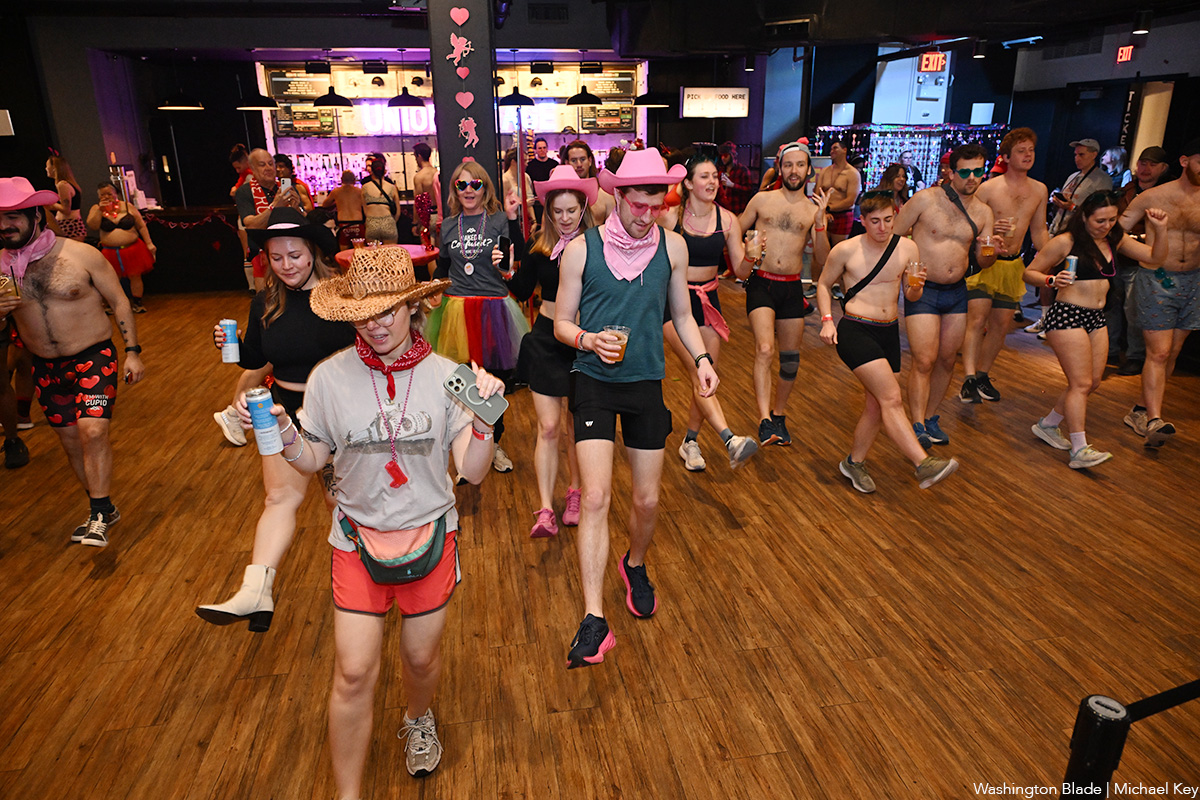
Cupid’s Undie Run, an annual fundraiser for neurofibromatosis (NF) research, was held at Union Stage and at The Wharf DC on Saturday, Feb. 21.
(Washington Blade photos by Michael Key)
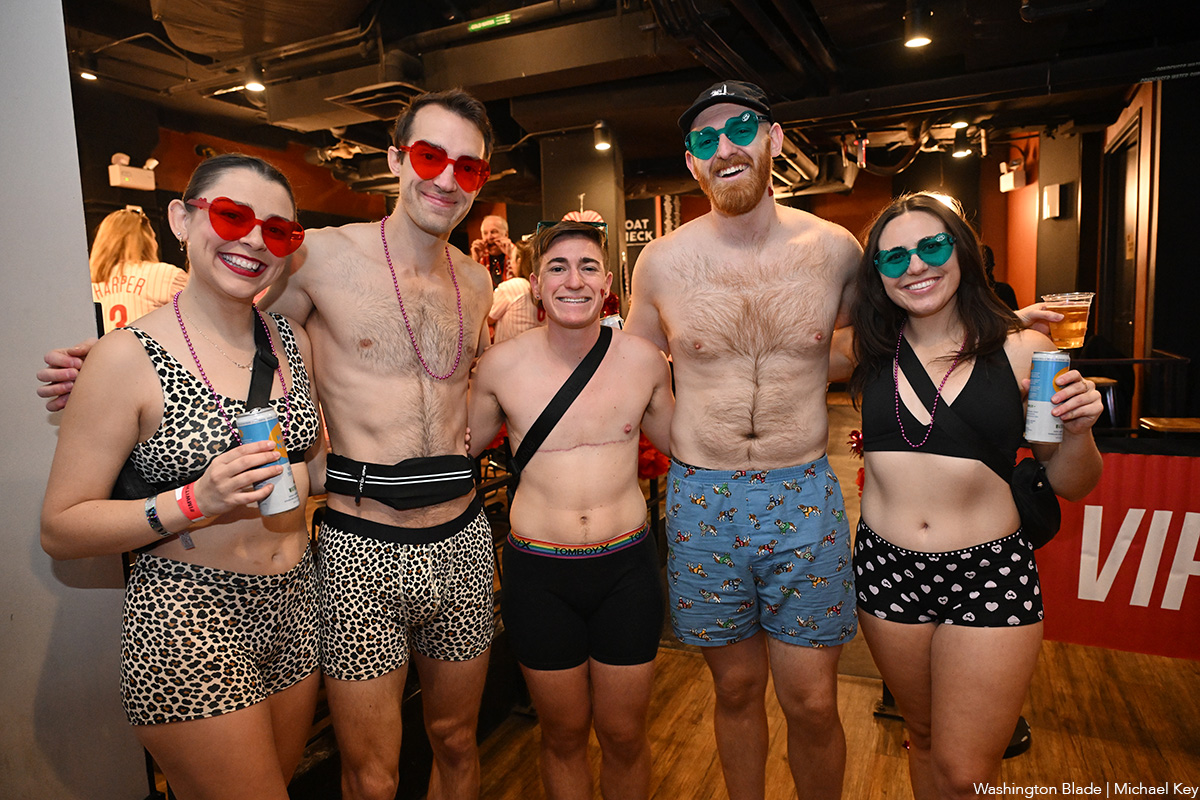
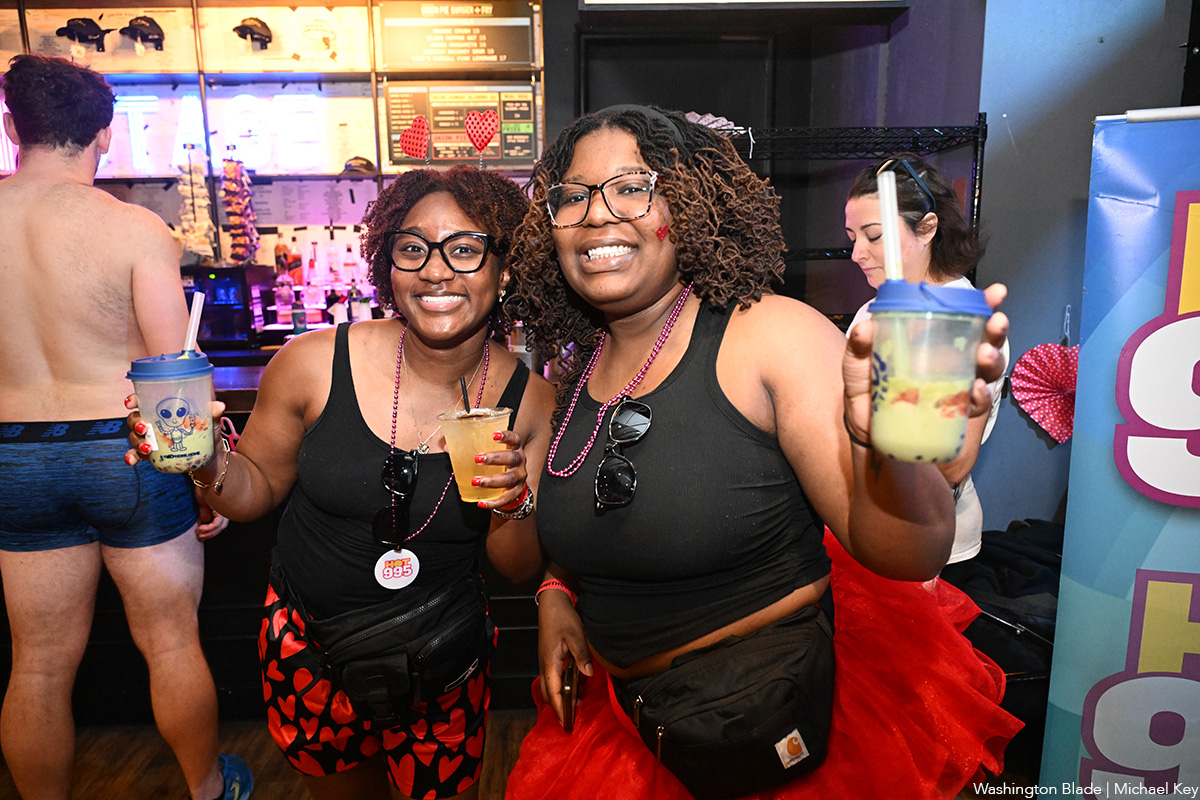
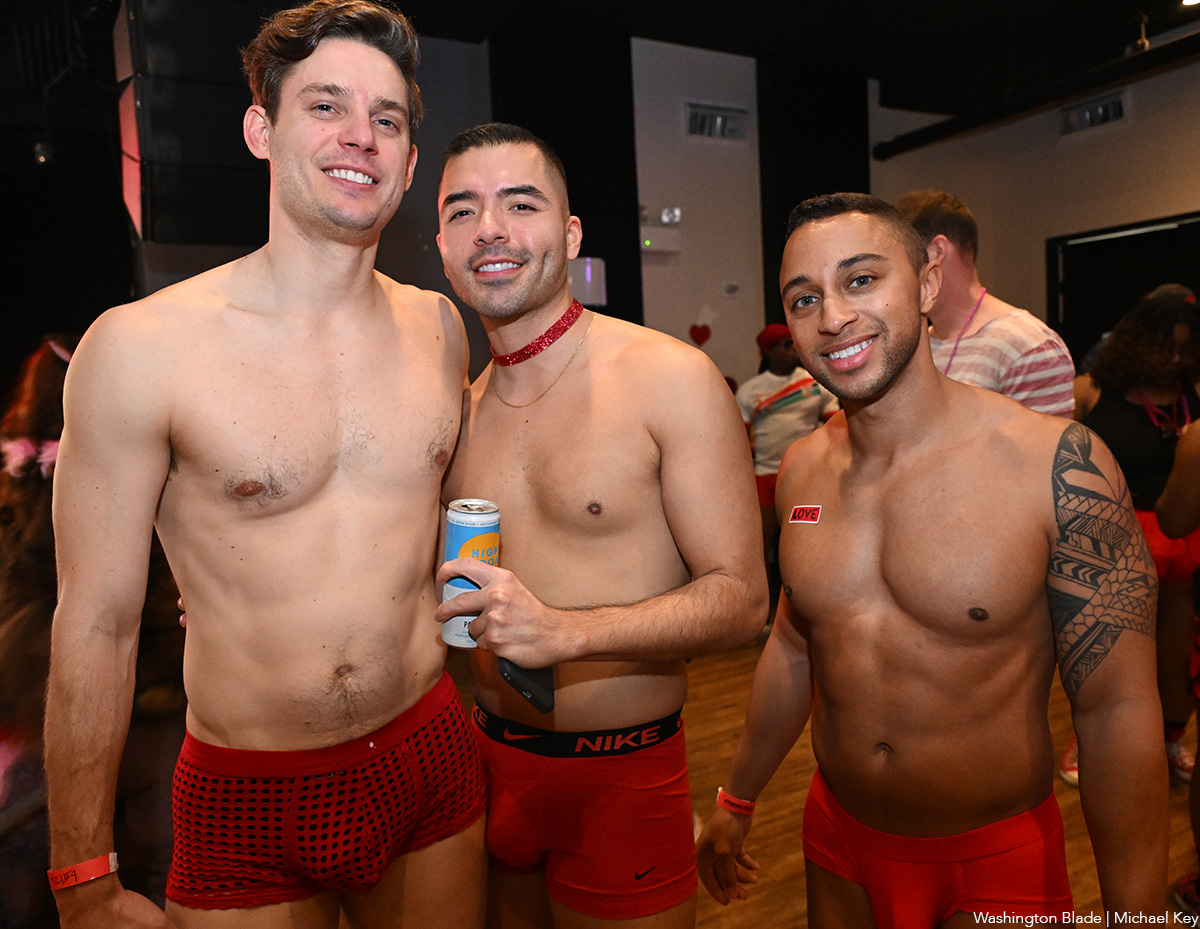
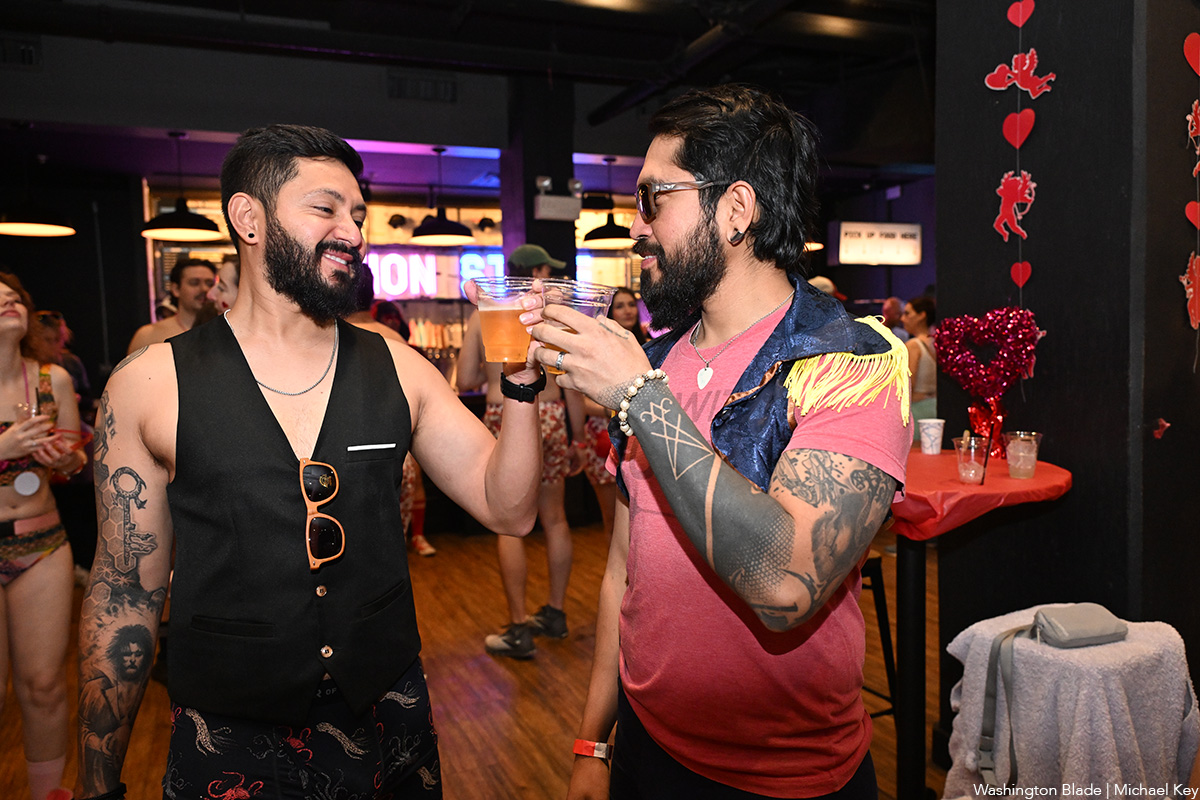
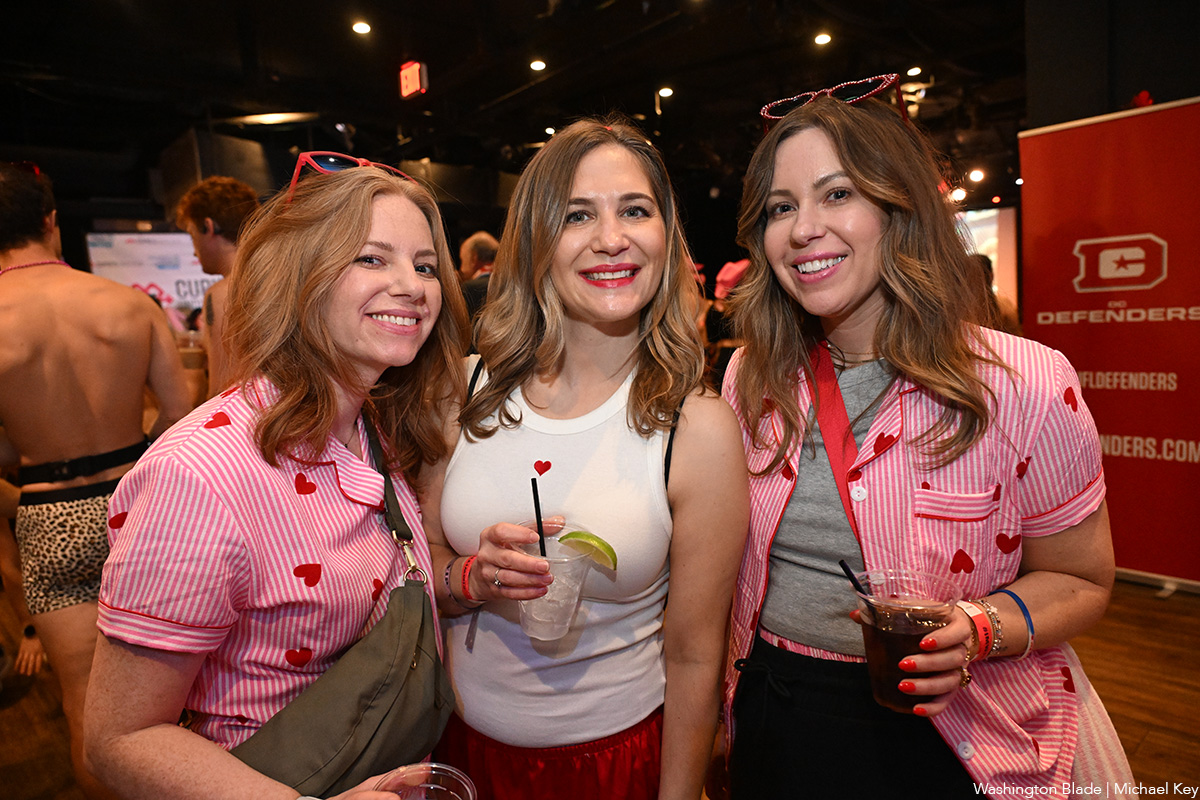
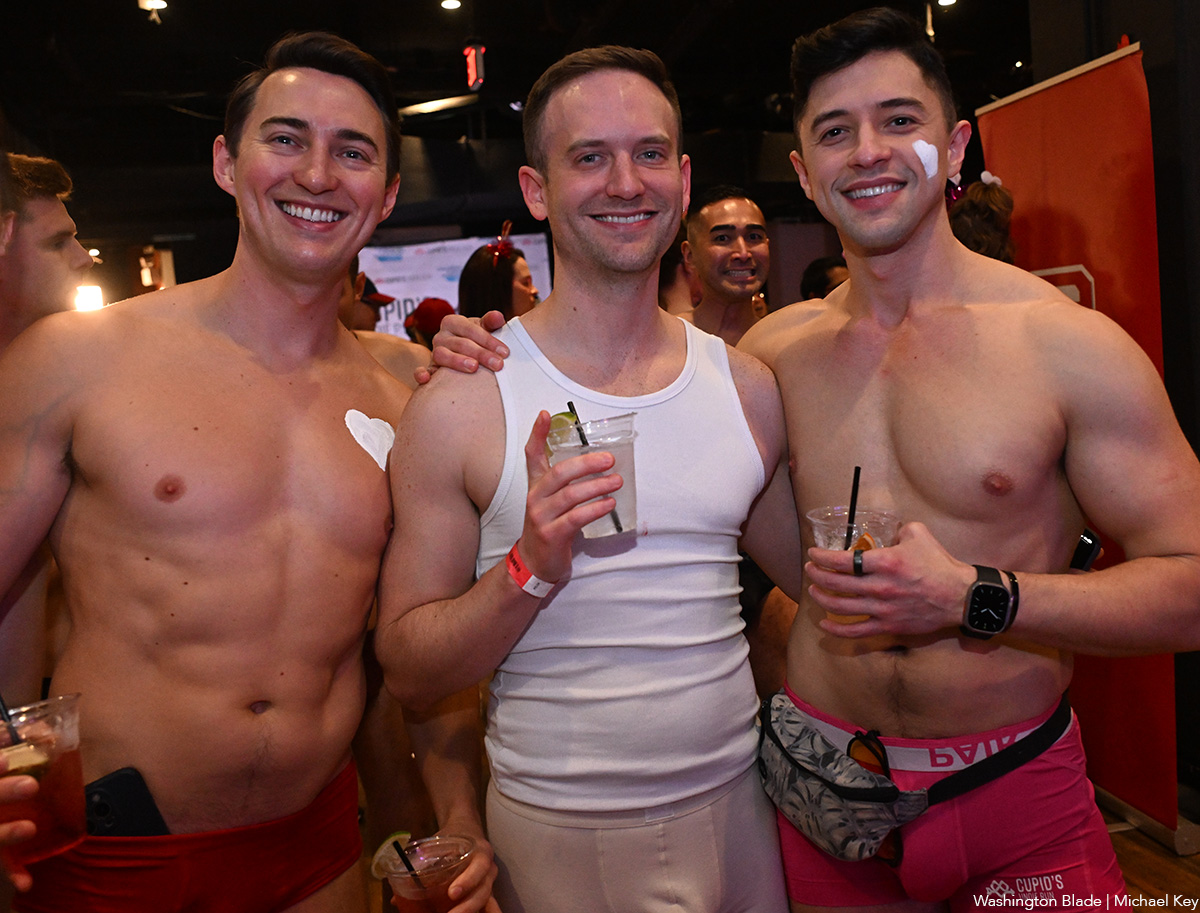
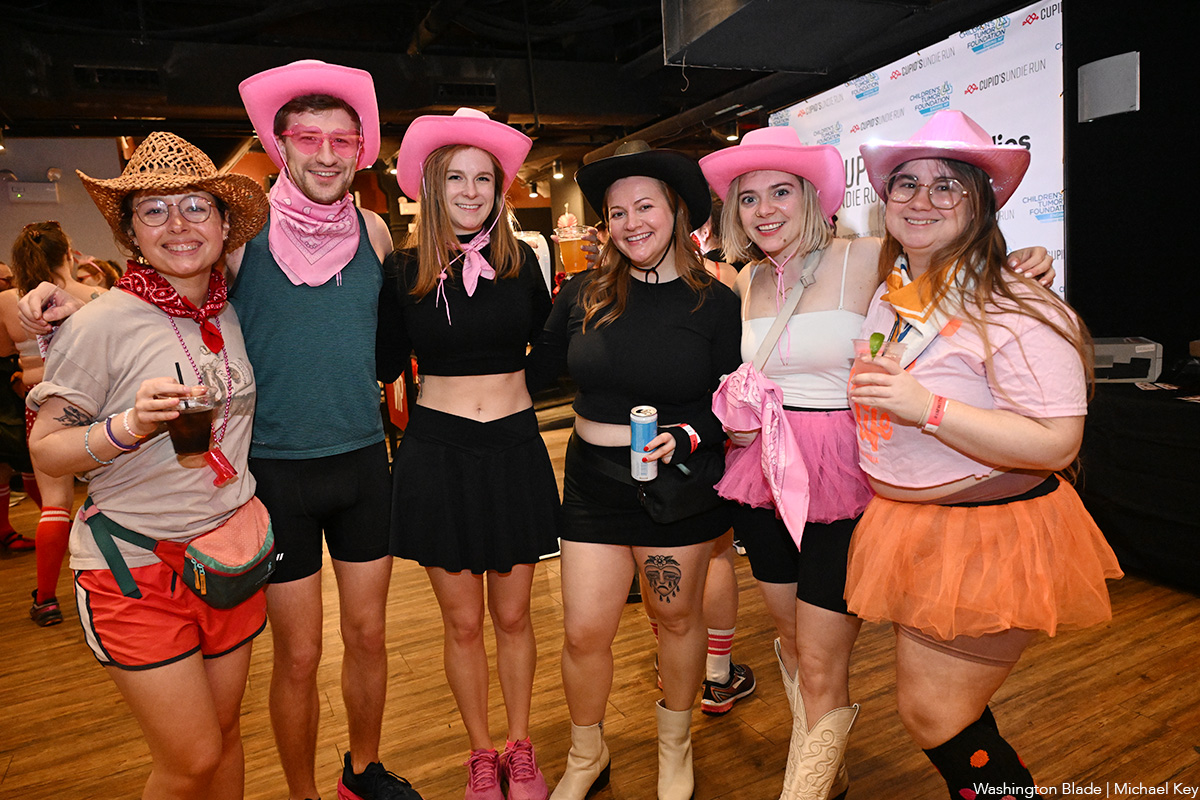
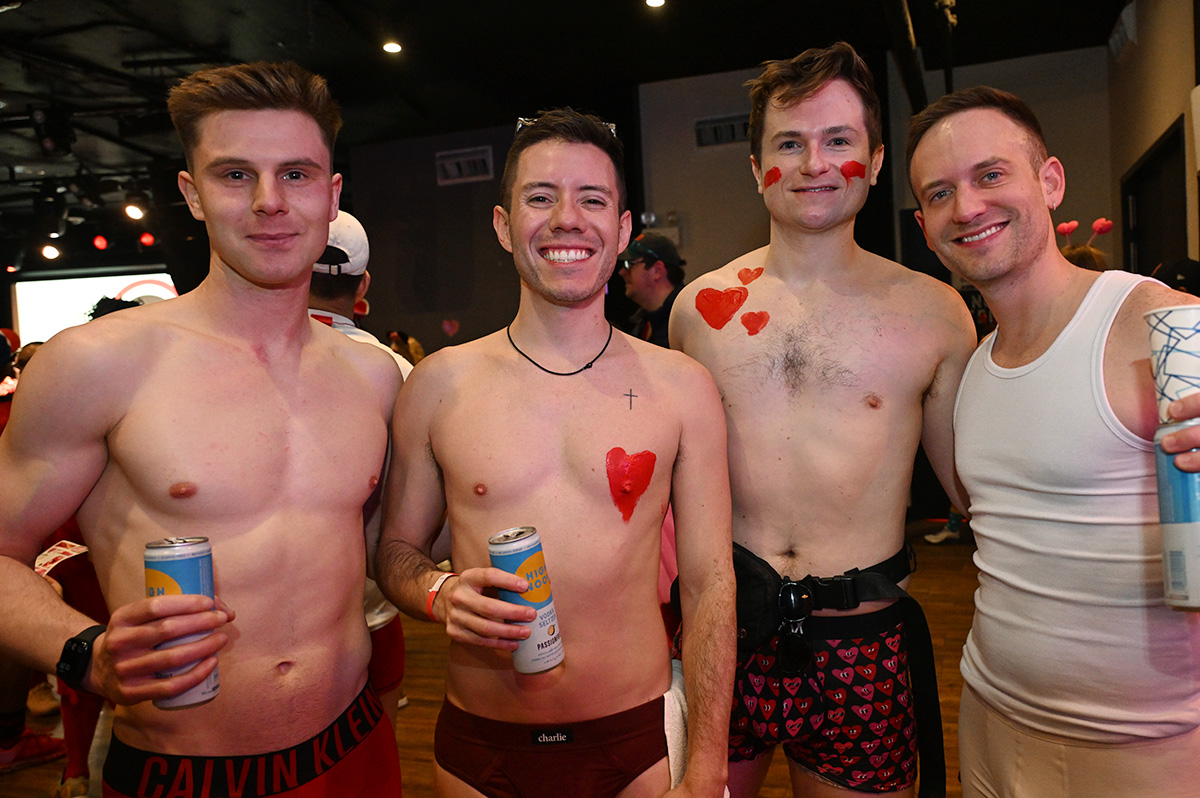
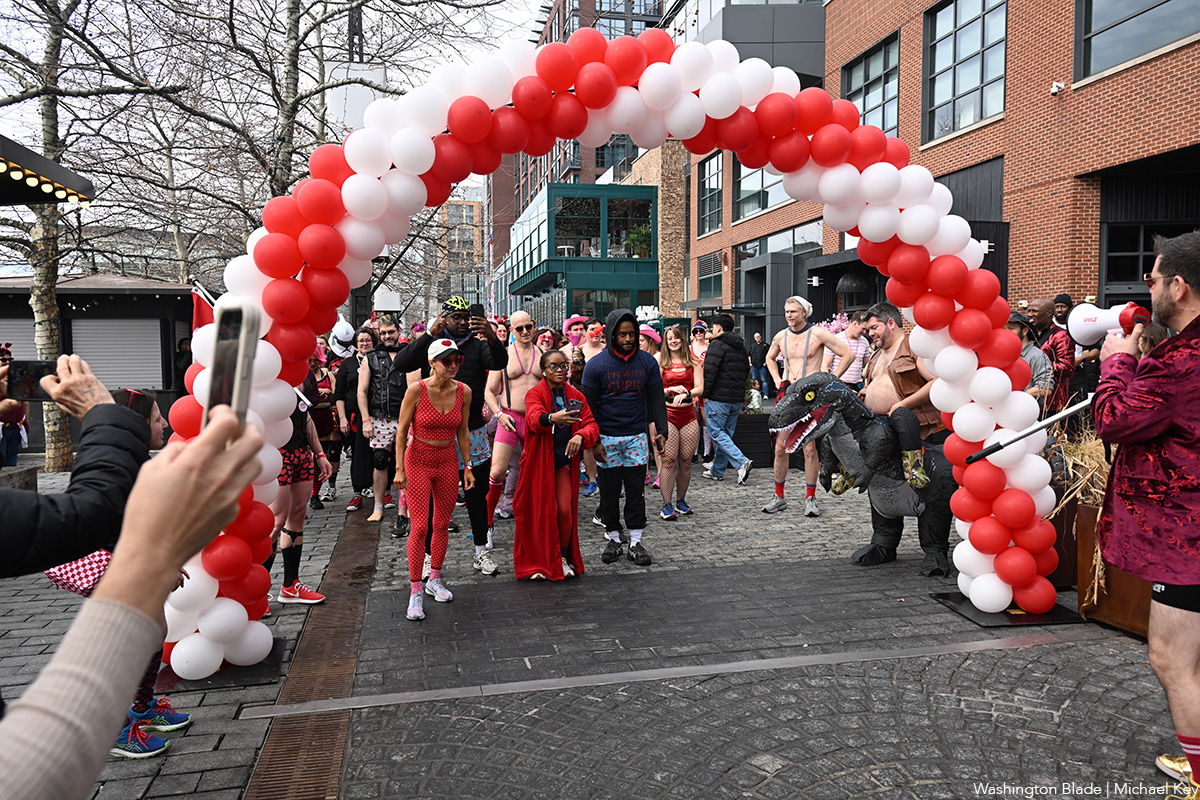
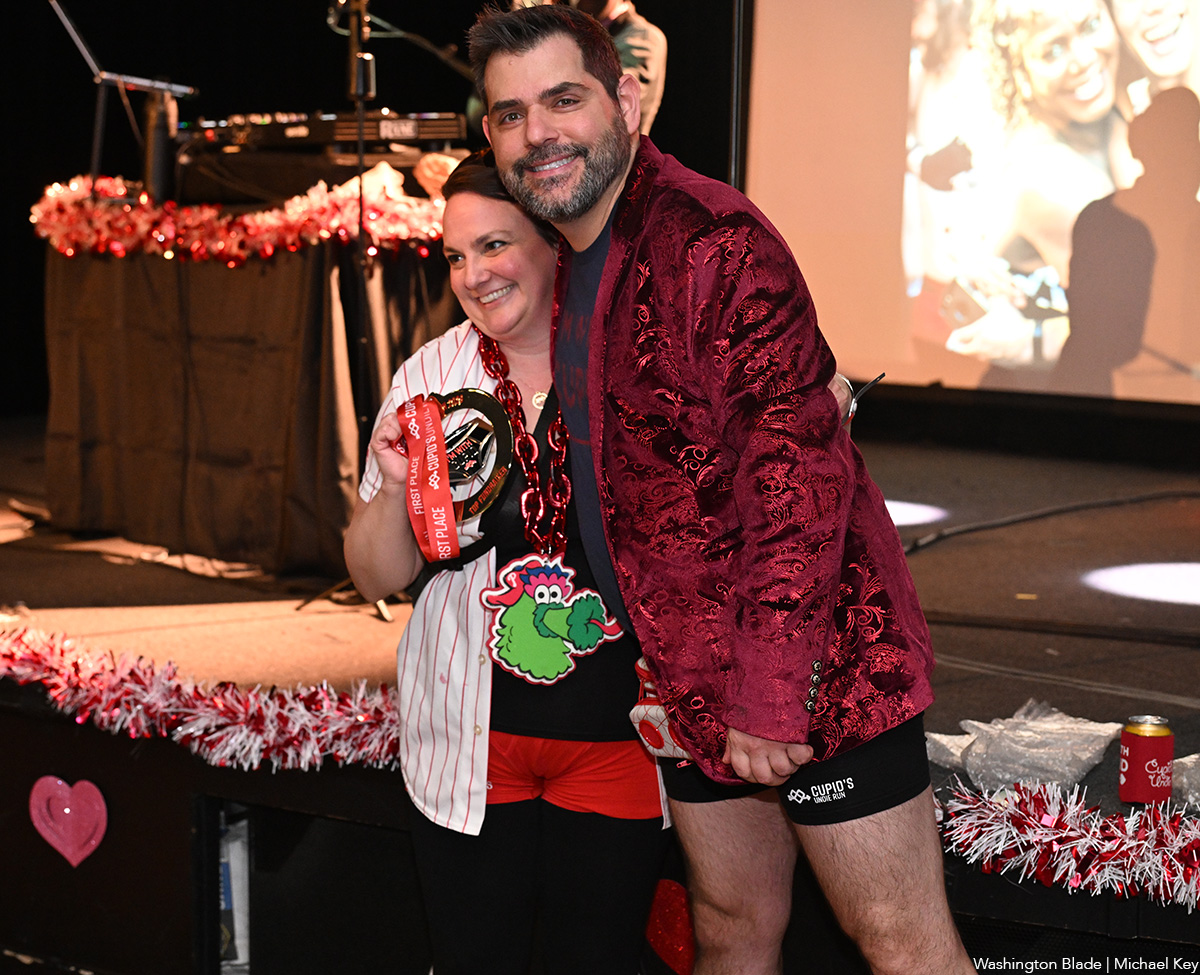
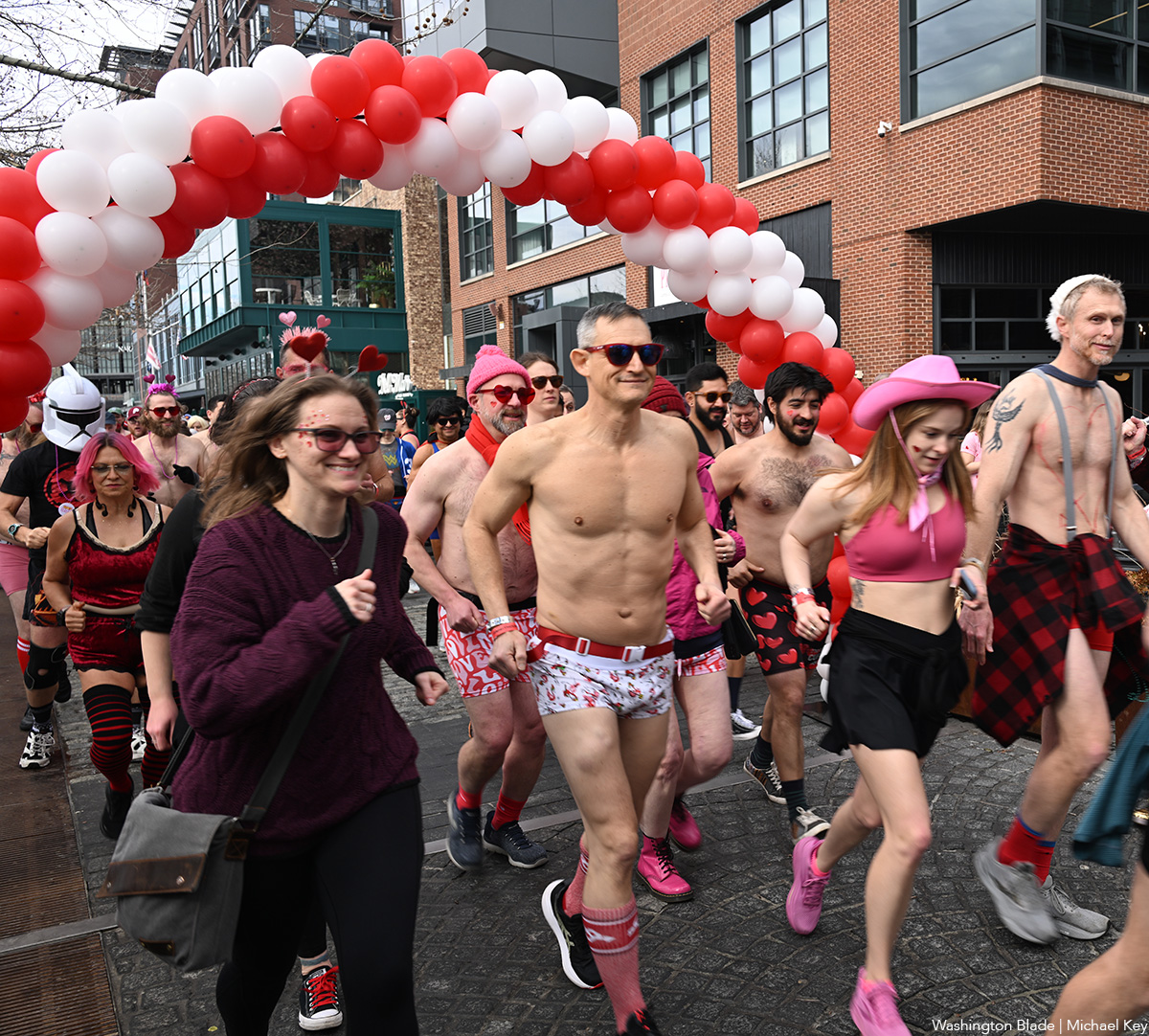
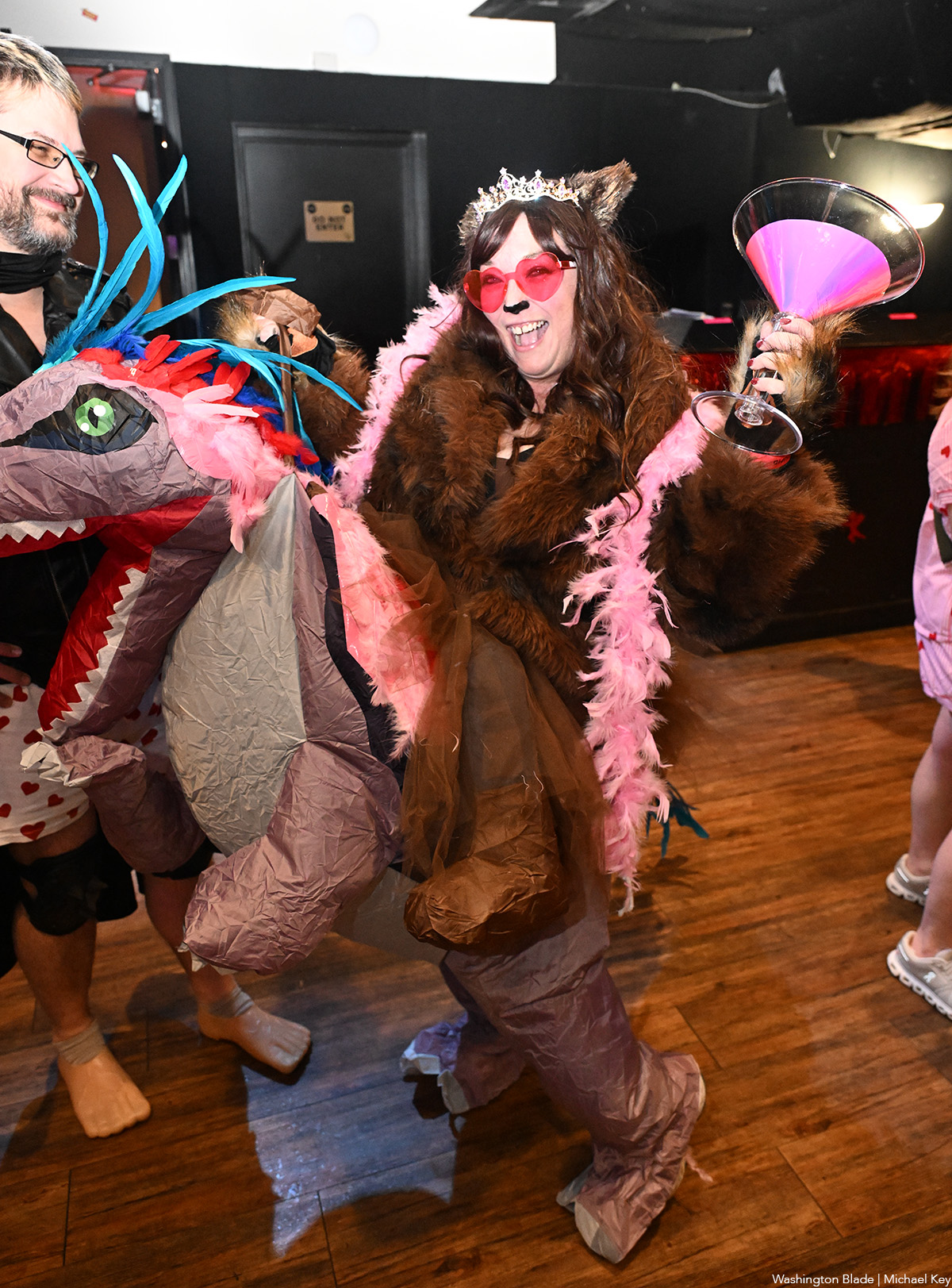
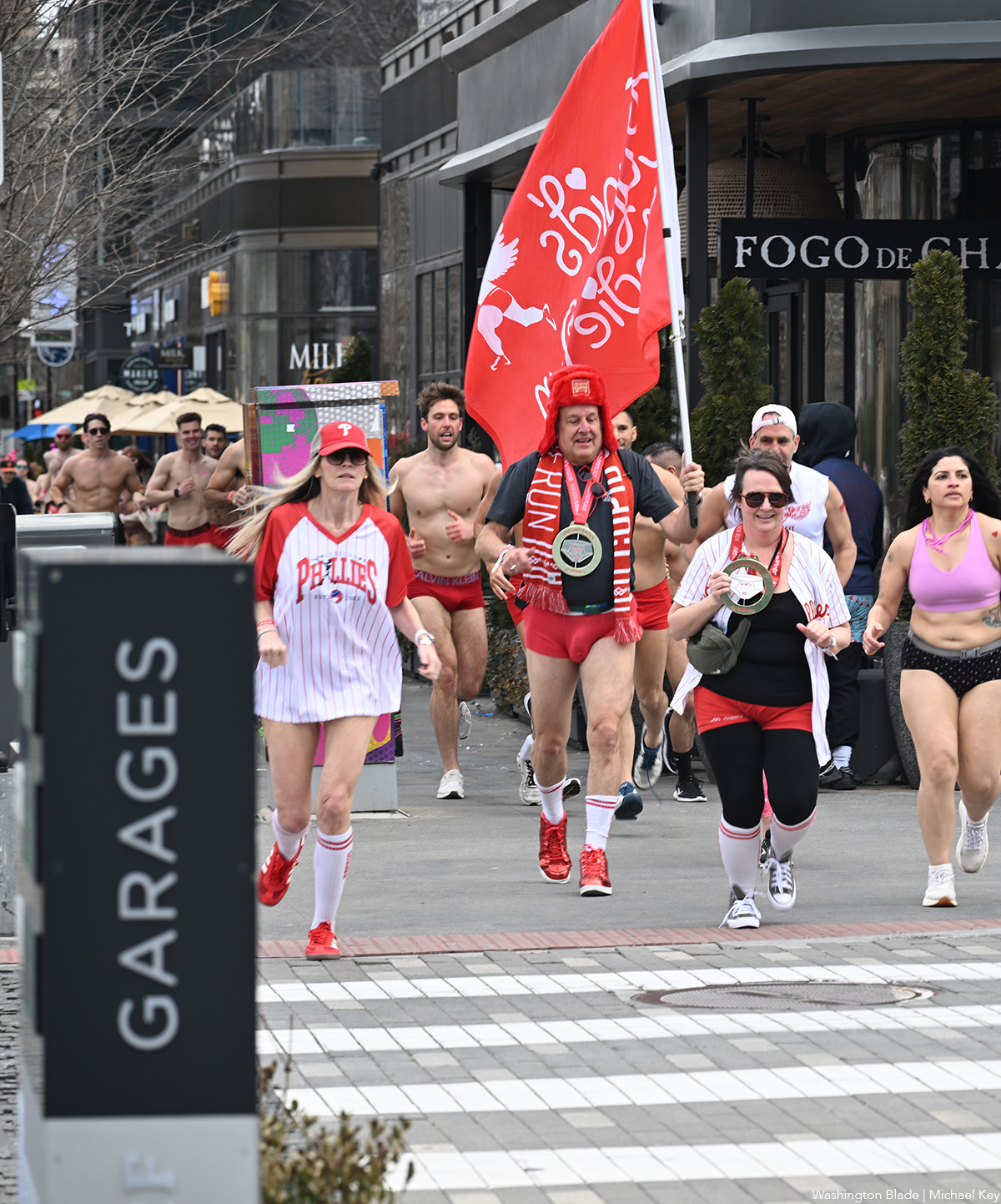
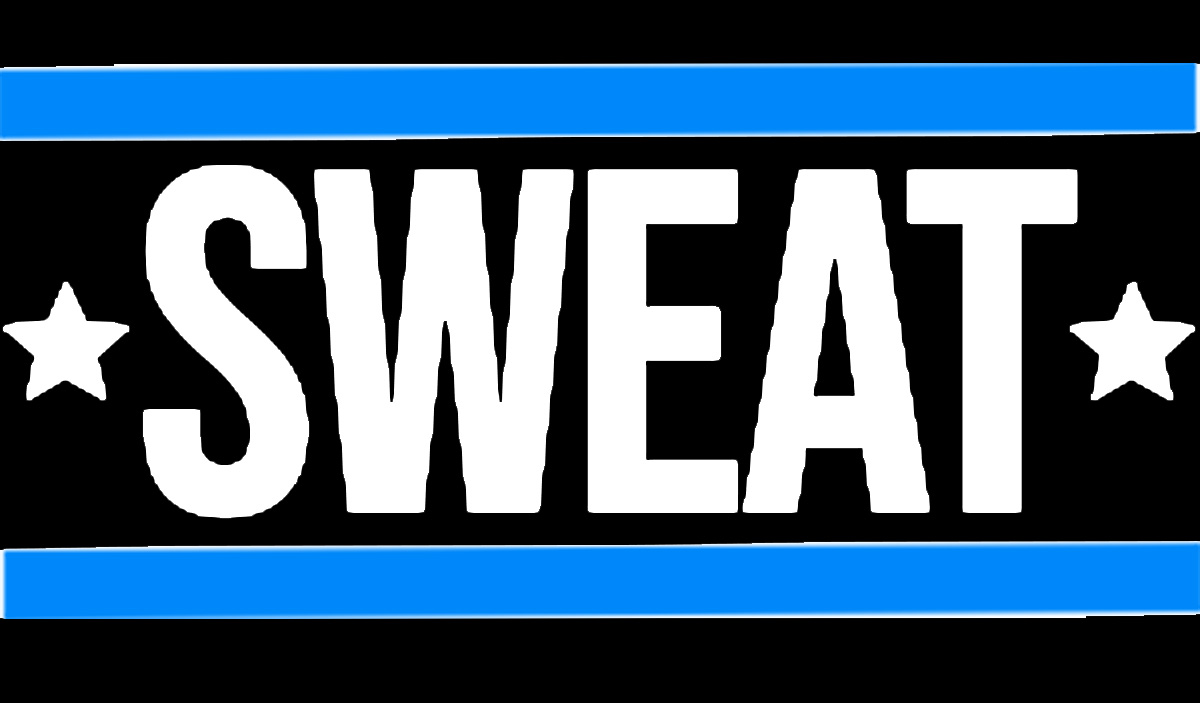
Sweat DC is officially expanding to Shaw, opening a new location at 1818 7th St., N.W., on Saturday, March 28 — and they’re kicking things off with a high-energy, community-first launch event.
To celebrate, Sweat DC is hosting Sweat Fest, a free community workout and social on Saturday, March 14, at 10 a.m. at the historic Howard Theatre. The event features a group fitness class, live DJ, local food and wellness partners, and a mission-driven partnership with the Open Goal Project, which works to expand access to youth soccer for players from marginalized communities.
For more details, visit Sweat DC’s website and reserve a spot on Eventbrite.

Friday, Feb. 20
Center Aging Monthly Luncheon with Yoga will be at noon at the D.C. LGBTQ+ Community Center. Email Mac at [email protected] if you require ASL interpreter assistance, have any dietary restrictions, or questions about this event.
Trans and Genderqueer Game Night will be at 7 p.m. at the D.C. Center. This will be a relaxing, laid-back evening of games and fun. All are welcome! We’ll have card and board games on hand. Feel free to bring your own games to share. For more details, visit the Center’s website.
Go Gay DC will host “First Friday LGBTQ+ Community Social” at 7 p.m. at Hotel Zena. This is a chance to relax, make new friends, and enjoy happy hour specials at this classic retro venue. Attendance is free and more details are available on Eventbrite.
Saturday, Feb. 21
Go Gay DC will host “LGBTQ+ Community Brunch” at 11 a.m. at Freddie’s Beach Bar & Restaurant. This fun weekly event brings the DMV area LGBTQ community, including allies, together for delicious food and conversation. Attendance is free and more details are available on Eventbrite.
LGBTQ People of Color will be at 7 p.m. on Zoom. This peer support group is an outlet for LGBTQ People of Color to come together and talk about anything affecting them in a space that strives to be safe and judgement free. There are all sorts of activities like watching movies, poetry events, storytelling, and just hanging out with others. For more information and events, visit thedccenter.org/poc or facebook.com/centerpoc.
Sunday, Feb. 22
Queer Talk DC will host “The Black Gay Flea Market” at 1 p.m. at Doubles in Petworth. There will be more than 15 Black queer vendors from all over the DMV in one spot. The event’s organizers have reserved the large back patio for all vendors, and the speak easy for bar service, which will be serving curated cocktails made just for the event (cash bar.) DJ Fay and DJ Jam 2x will be spinning the entire event. For more details, visit Eventbrite.
Monday, Feb. 23
“Center Aging: Monday Coffee Klatch” will be at 10 a.m. on Zoom. This is a social hour for older LGBTQ adults. Guests are encouraged to bring a beverage of choice. For more information, contact Adam at [email protected].
Tuesday, Feb. 24
Coming Out Discussion Group will be at 7 p.m. on Zoom. This is a safe space to share experiences about coming out and discuss topics as it relates to doing so — by sharing struggles and victories the group allows those newly coming out and who have been out for a while to learn from others. For more details, visit the group’s Facebook.
Genderqueer DC will be at 7 p.m. on Zoom. This is a support group for people who identify outside of the gender binary, whether you’re bigender, agender, genderfluid, or just know that you’re not 100 percent cis. For more details, visit genderqueerdc.org or Facebook.
Wednesday, Feb. 25
Job Club will be at 6 p.m. on Zoom upon request. This is a weekly job support program to help job entrants and seekers, including the long-term unemployed, improve self-confidence, motivation, resilience and productivity for effective job searches and networking — allowing participants to move away from being merely “applicants” toward being “candidates.” For more information, email [email protected] or visit thedccenter.org/careers.
Asexual and Aromantic Group will meet at 7 p.m. on Zoom. This is a space where people who are questioning this aspect of their identity or those who identify as asexual and/or aromantic can come together, share stories and experiences, and discuss various topics. For more details, email [email protected].
Thursday, Feb. 26
The DC Center’s Fresh Produce Program will be held all day at the DC Center. To be more fair with who is receiving boxes, the program is moving to a lottery system. People will be informed on Wednesday at 5 p.m. if they are picked to receive a produce box. No proof of residency or income is required. For more information, email [email protected] or call 202-682-2245.
Virtual Yoga Class will be at 7 p.m. on Zoom. This free weekly class is a combination of yoga, breathwork and meditation that allows LGBTQ community members to continue their healing journey with somatic and mindfulness practices. For more details, visit the DC Center’s website.

